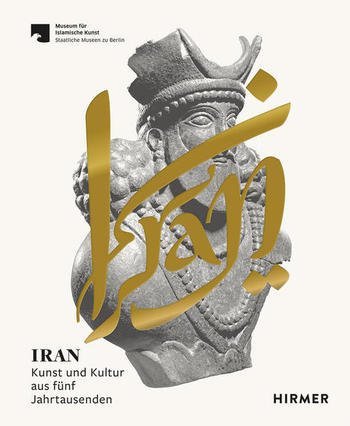Online-Lectures - Iran. Five Millennia of Art and Culture
News from Feb 01, 2022
Ifree public online lectures from our accompanying programme to the special exhibition "Iran. Five Millennia of Art and Culture":
-Early Cities in Iran | Prof. Dr. Barbara HelwingThursday, 17 February 2022, 6:30 pm (CET)
Webex link: https://spk-berlin.webex.com/spk-berlin/j.php?MTID=m852ad25c7f7d17b39466ea619bcd1076
Language: English
The lecture presents the current state of knowledge of archaeological research on the first cities in the Iranian highlands and takes a look at the imaginative imagery of the surviving finds.
Webex link: https://spk-berlin.webex.com/spk-berlin/j.php?MTID=m852ad25c7f7d17b39466ea619bcd1076
-Modern Art in Iran | Ina Sarikhani
Thursday, 24 February 2022, 6:30 pm (CET)
Webex link: https://spk-berlin.webex.com/spk-berlin/j.php?MTID=m353ad99b63c0b6df0144a8f0a710698b
Language: English
-Kashan – Crossroads of Commerce and Culture | Prof. Dr. Roy Mottahedeh
Thursday, 3 March 2022, 6:30 pm (CET)
Webex link: https://spk-berlin.webex.com/spk-berlin/j.php?MTID=mdd136325730ab0ebe56f35650d3ad67e
Language: English
The arrival of substantial numbers of Arab immigrants in Kashan in the early Islamic period played an important role in the city’s development and its continuation as a centre of Shīʻism. A strong educational tradition produced many talented Kashani officials who served in the Seljuk and later administrations. In the Seljuk period Kashan gained a reputation for its production of luxury ceramics, including its lustre ware and pictorial mīnā’ī ware.
Webex link: https://spk-berlin.webex.com/spk-berlin/j.php?MTID=mdd136325730ab0ebe56f35650d3ad67e
-The Rituals of the Zoroastrians from Antiquity to the Present Day | Prof. Dr. Alberto Cantera
Thursday, 10 March 2022, 6:30 pm (CET)
Webex link: https://spk-berlin.webex.com/spk-berlin/j.php?MTID=mc5c488d74435198e43428e2f45f9dc8c
Language: English
Zoroastrian rituals are still accompanied by the recitation of texts in Avestic, an ancient Iranian language, in India, Iran and the diaspora. These texts were probably written before the 5th century BCE for the performance of similar rituals. Zoroastrianism is thus characterised by one of the longest ritual continuities in the world. The lecture will discuss the arguments that support this thesis, contrary to the previously held position that rituals were reinvented in Late Antiquity.
Webex link: https://spk-berlin.webex.com/spk-berlin/j.php?MTID=mc5c488d74435198e43428e2f45f9dc8c
All lectures will be broadcast live on the day of the event via the above links. Registration is not required.


